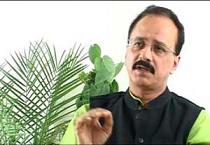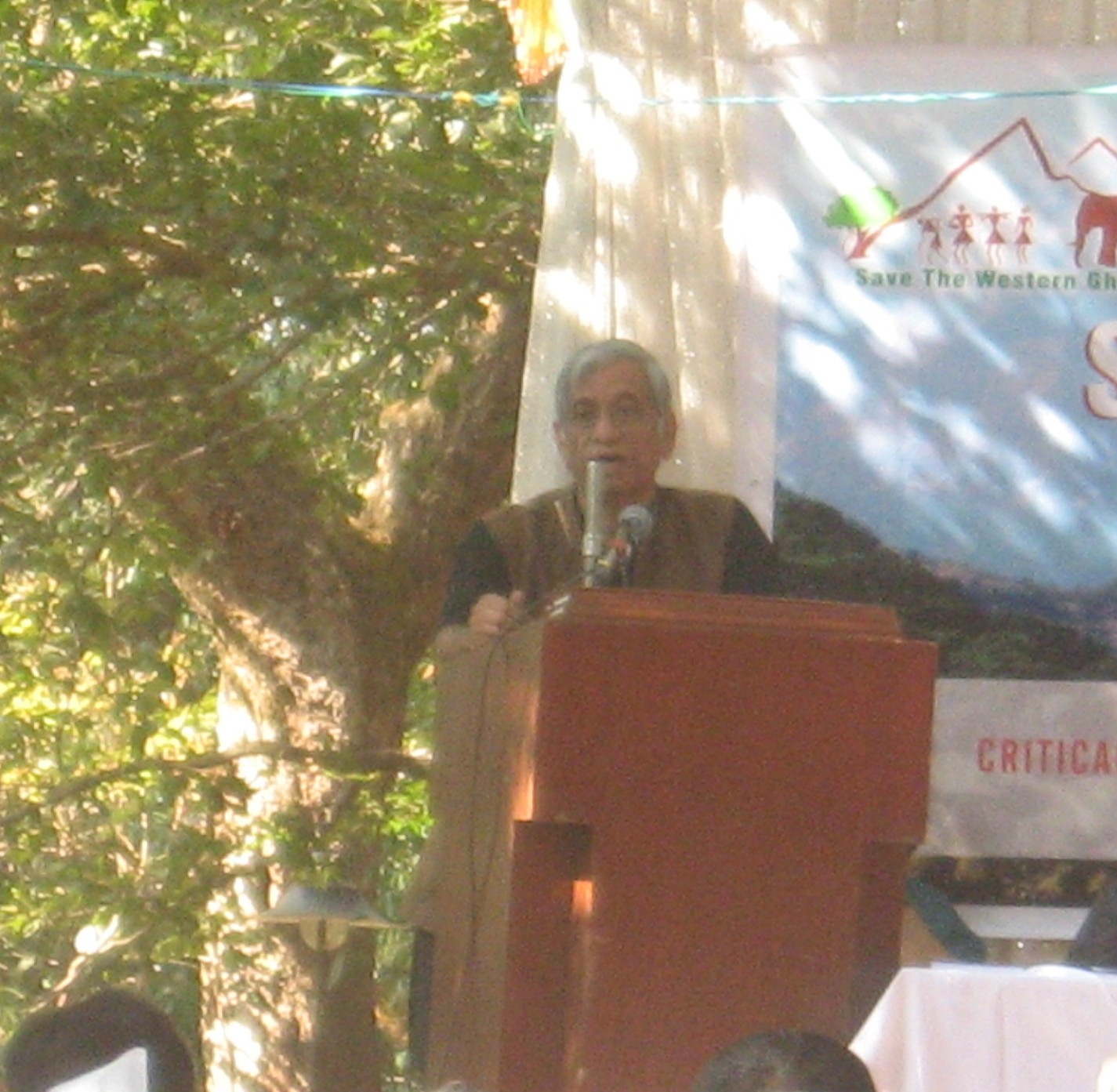Interviews
"No full stops for this rainman" - Interview with Shree Padre, farmer, water journalist and rainwater harvesting "evangelist" based in Kerala (2007)
Posted on 14 Jul, 2011 10:41 AMAuthor: Namitha Dipak, Lokhit Pashu-Palak Sansthan
Shree Padre, farmer, water journalist, and rainwater harvesting “evangelist” based in Kerala, India
Intensive farming responsible for farmer suicides - Interview with Devinder Sharma with special focus on Odisha
Posted on 27 Jun, 2011 11:54 AM
Q: Odisha is not much known for farmers' suicide the way we hear it in Vidarbha, Andhra Pradesh etc. But of late such cases are being reported in the media. What's the reason?
A: When you look at the issue of farmers' suicide, it's an indication of the crisis that exists in the agriculture sector. This is linked to monoculture and intensive or industrial farming model that have been implemented in the country. Vidharbha for instance has been in the news on the issue of farmers' suicide mainly because there is one NGO namely Vidharbha Jan Andolan Samiti which regularly compiles the figures of farmers suicide and feeds to the media. Unfortunately there are no such NGOs elsewhere to do a similar job. So therefore we do not get the real picture of farmers distress in other areas where conditions are equally bad. If suppose this NGO also stops compiling suicide figures, our impression about Vidharbha as a suicide belt of India will also disappear. In other words, not only in Vidharbha, agriculture across the country is in a terrible crisis.
"Every 30 Minutes": Crushed by debt and neoliberal reforms, Indian farmers commit suicide at a staggering rate - A report by CHR&GJ - NYU School of Law - Interview with Democracy Now
Posted on 14 Jun, 2011 05:46 PMThe crisis has ballooned with economic liberalization that has removed agricultural subsidies and opened Indian agriculture to the global market. Small farmers are often trapped in a cycle of insurmountable debt, leading many to take their lives out of sheer desperation.
Jackfruit is vital for food security, says Bijay Kumar of NHB
Posted on 01 Feb, 2011 05:26 PM
This is the opinion of Bijay Kumar, Managing Director of National Horticulture Board (NHB). He was expressing this in an exclusive interview to Panasam Wonders.
He regretted “We are not able to exploit its full potential. But as it is a good livelihood option for the weaker sections of the society, it’s high time to concentrate our efforts for its development.”
Corruption has fuelled India's economic growth - OneWorld South Asia interview with Devinder Sharma
Posted on 01 Feb, 2011 05:18 PM
We are not doing a true cost-benefit analysis of hydropower dams in India - Interview with Dr. Bharat Jhunjhunwala
Posted on 28 Jan, 2011 05:46 PM Dr. Bharat Jhunjhunwala, past faculty at IIM, Bangalore, holds a doctorate in Economics. He has been working persistently on economic impacts of hydropower dams, applying the concepts of environmental economics to arrive at some interesting results.
Dr. Bharat Jhunjhunwala, past faculty at IIM, Bangalore, holds a doctorate in Economics. He has been working persistently on economic impacts of hydropower dams, applying the concepts of environmental economics to arrive at some interesting results.
His latest book, ‘Economics of River Flows: Lessons from Dam Removals from America’ analyses dam decommissioning examples from the United States and raises some pertinent questions about costs benefit analysis of dams in India. His earlier book, ‘Economics of Hydropower’ raised questions about economic efficiency, viability and sustainability of Hydropower Dams in India.
Parineeta Dandekar, IWP, talks with him on some of these issues.
Dr. Bharat Jhunjhunwala can be contacted at: bharatjj@gmail.com
Fluorosis water contamination in rural India - A video by Earth Report
Posted on 26 Nov, 2010 12:08 PMVideo Courtesy: EarthReport
Source: 5min Media
It has been proved that it's a direct result of drinking ground water that's contaminated with high levels of fluoride. This video suggests that rainwater is the best source of water for communities living in these regions.
"Indian rivers have not been understood as ecosystems but are treated as conduits of water or wastewater" - Interview with Dr. Brij Gopal
Posted on 17 Nov, 2010 04:42 PMDr. Brij Gopal, Vice President, National Institute of Ecology and former Member, Working Group on Minimum Flows, constituted by the Water Quality Assessment Authority, talks to Parineeta Dandekar, India Water Portal about the urgent need of freshwater flows in Indian rivers, and the legal and institutional set ups required to ensure this.
